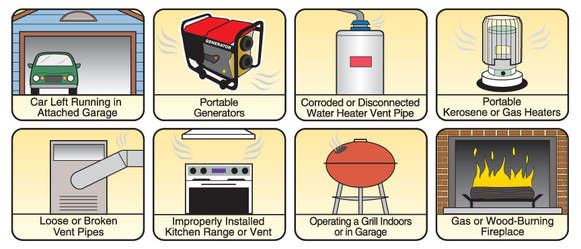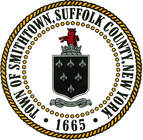Carbon Monoxide Safety is Part of Every Home Energy Audit

Carbon monoxide (CO) is produced whenever any fuel such as gas, oil, kerosene, wood, or charcoal is burned. If appliances that burn fuel are maintained and used properly, the amount of CO produced is usually not hazardous. However, if appliances are not working properly or are used incorrectly, dangerous levels of CO can result. Carbon monoxide is often referenced as “the silent killer” because it can’t be seen or smelled, but at high levels it can kill a person in minutes. Hundreds of people die accidentally every year from CO poisoning caused by malfunctioning or improperly used fuel-burning appliances. Even more die from CO produced by idling cars. Pregnant women, infants, the elderly, and people with anemia or with a history of heart or respiratory disease can be especially susceptible.
Carbon monoxide in the home can come from many sources, including oil and gas furnaces, gas water heaters, gas ranges and ovens, gas dryers, gas or kerosene space heaters, fireplaces, and wood stoves. Prevention is the key to avoiding carbon monoxide poisoning.
A Long Island Green Homes home energy audit will not only help you lower your utility bills, every energy audit conducted by our certified professionals will include a carbon monoxide safety check to identify whether your home's combustible appliances have a carbon monoxide leak. That fact alone is worth arranging for your FREE home energy audit.
Carbon monoxide in the home can come from many sources, including oil and gas furnaces, gas water heaters, gas ranges and ovens, gas dryers, gas or kerosene space heaters, fireplaces, and wood stoves. Prevention is the key to avoiding carbon monoxide poisoning.
A Long Island Green Homes home energy audit will not only help you lower your utility bills, every energy audit conducted by our certified professionals will include a carbon monoxide safety check to identify whether your home's combustible appliances have a carbon monoxide leak. That fact alone is worth arranging for your FREE home energy audit.
Here are some additional DOs and DON'Ts of carbon monoxide:
Do install a digital read out, battery-operated or battery back-up CO detector in your home and check or replace the battery when you change the time on your clocks each spring and fall. If the detector sounds, leave your home immediately and call 911.
Do seek prompt medical attention if you suspect CO poisoning.
Do adhere to manufacturers instructions when using appliances
Do have a high standard CO detector fitted outside sleeping areas, and main living areas. This should be placed high up or on the ceiling as CO rises rapidly.
Don't use a generator, charcoal grill, camp stove, or other gasoline or charcoal-burning device inside your home, basement, or garage or near a window and have your vents and chimney checked and cleaned on a regular basis.
Don't run a car or truck inside a garage attached to your house, even if you leave the door open. Fumes build up quickly in the living area of your home.
Don't burn anything in a stove or fireplace that isn't vented.
Don't heat your house with a gas oven
Don’t sleep in a room with an unvented gas or kerosene space heater.
Do install a digital read out, battery-operated or battery back-up CO detector in your home and check or replace the battery when you change the time on your clocks each spring and fall. If the detector sounds, leave your home immediately and call 911.
Do seek prompt medical attention if you suspect CO poisoning.
Do adhere to manufacturers instructions when using appliances
Do have a high standard CO detector fitted outside sleeping areas, and main living areas. This should be placed high up or on the ceiling as CO rises rapidly.
Don't use a generator, charcoal grill, camp stove, or other gasoline or charcoal-burning device inside your home, basement, or garage or near a window and have your vents and chimney checked and cleaned on a regular basis.
Don't run a car or truck inside a garage attached to your house, even if you leave the door open. Fumes build up quickly in the living area of your home.
Don't burn anything in a stove or fireplace that isn't vented.
Don't heat your house with a gas oven
Don’t sleep in a room with an unvented gas or kerosene space heater.
Member Towns and Organizations:












